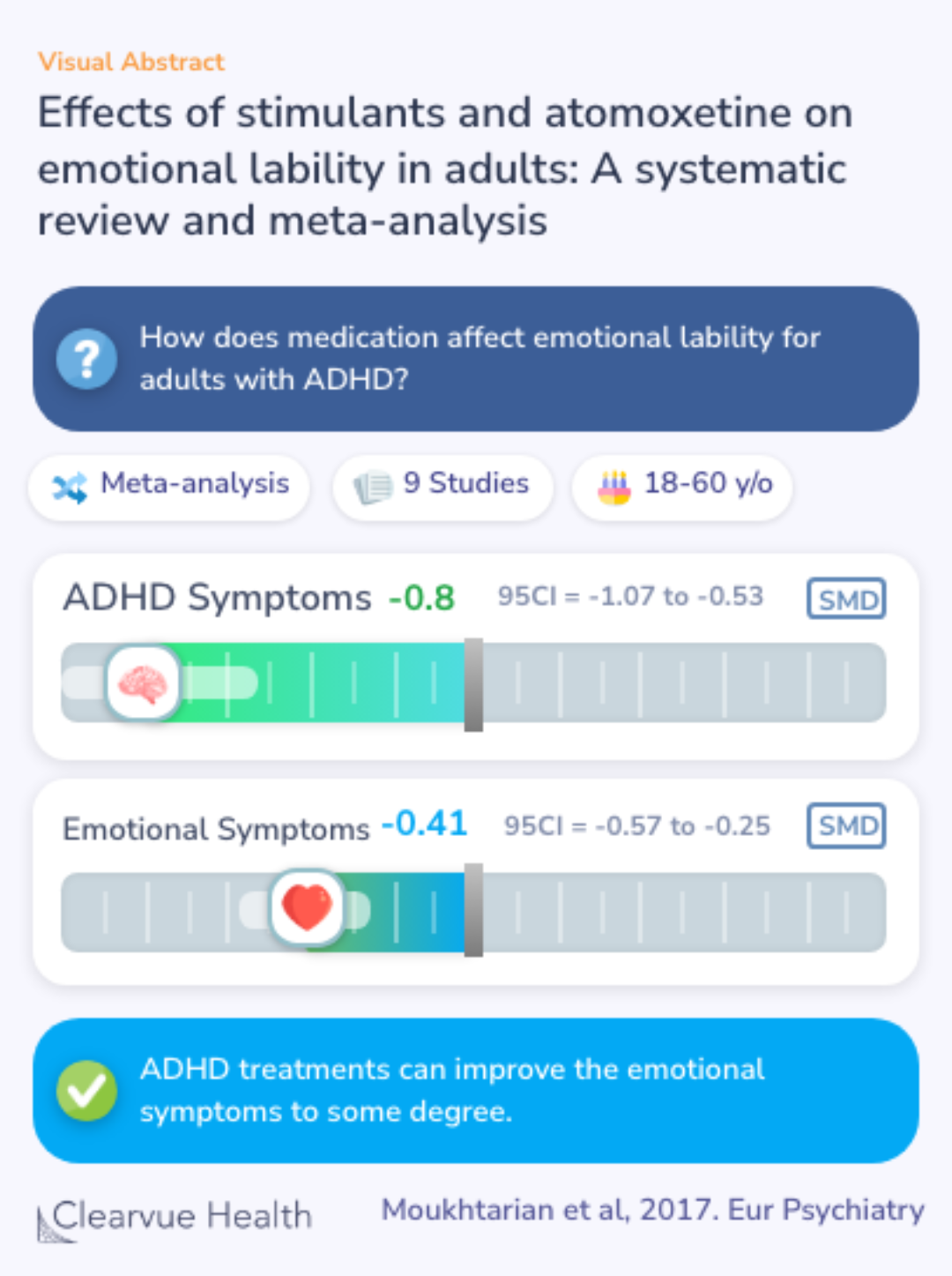Effects of stimulants and atomoxetine on emotional lability in adults: A systematic review and meta-analysis
Summarized by Charles Li, MD
October 2, 2022

Background
Some individuals with ADHD can have difficulties regulating their emotions. They can experience rapidly shifting emotions and exaggerated emotions at times.
The researchers in this study aimed to find out what effects ADHD medications can have on emotional regulation in ADHD
Emotional lability (EL) is an associated feature of attention-deficit/hyperactivity disorder (ADHD) in adults, contributing to functional impairment. Yet the effect of pharmacological treatments for ADHD on EL symptoms is unknown. We conducted a systematic review and meta-analysis to exa...
Methods
Researchers conducted a meta-analysis, where they combined data from 9 studies to see how ADHD medications affect emotions.
Each of these studies was a double-blind placebo-controlled clinical trial, the gold standard of medical research.
A systematic search was conducted on the databases Embase, PsychInfo, and Ovid Medline® and the clinicaltrials.gov website. We included randomised, double-blind, placebo-controlled trials of stimulants and atomoxetine in adults aged 18-60 years, with any mental health diagnosis character...
Results
They found that stimulants and atomoxetine, otherwise known as Strattera, led to significant reductions in ADHD symptoms.
This reflects the effectiveness of medication in treating ADHD.
There was also a reduction in the emotional symptoms in these studies but to a lesser degree.
Individuals who were given ADHD medication were more likely to experience improved emotional symptoms. However, on average, this improvement was less than the improvement they saw in their ADHD symptoms.
Of the 3,864 publications identified, nine trials met the inclusion criteria for the meta-analysis. Stimulants and atomoxetine led to large mean weighted effect-sizes for on ADHD symptoms (n=9, SMD=-0.8, 95% CI:-1.07 to -0.53). EL outcomes showed more moderate but definite effects (n=9, ...
Conclusions
The authors concluded that most ADHD treatments, including stimulants and atomoxetine, could improve emotional symptoms in ADHD.
However, the effect size is smaller than the improvement of core ADHD symptoms.
In this meta-analysis, stimulants and atomoxetine were moderately effective for EL symptoms, while effect size on core ADHD symptoms was twice as large. Methodological issues may partially explain the difference in effect size. Reduced average effect size could also reflect heterogeneity...